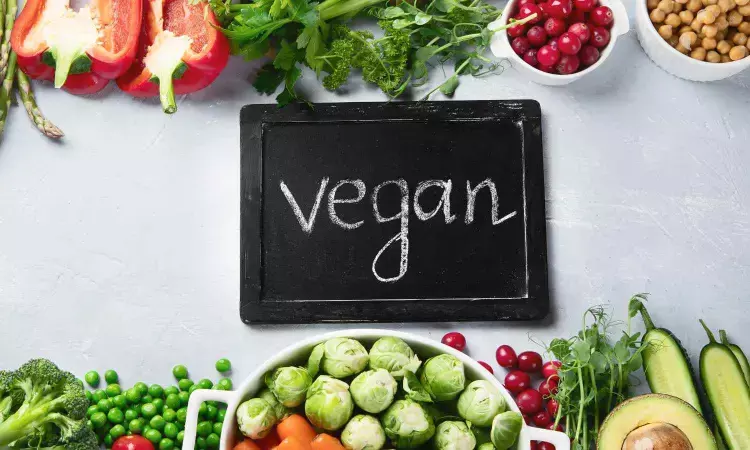- Home
- Medical news & Guidelines
- Anesthesiology
- Cardiology and CTVS
- Critical Care
- Dentistry
- Dermatology
- Diabetes and Endocrinology
- ENT
- Gastroenterology
- Medicine
- Nephrology
- Neurology
- Obstretics-Gynaecology
- Oncology
- Ophthalmology
- Orthopaedics
- Pediatrics-Neonatology
- Psychiatry
- Pulmonology
- Radiology
- Surgery
- Urology
- Laboratory Medicine
- Diet
- Nursing
- Paramedical
- Physiotherapy
- Health news
- Fact Check
- Bone Health Fact Check
- Brain Health Fact Check
- Cancer Related Fact Check
- Child Care Fact Check
- Dental and oral health fact check
- Diabetes and metabolic health fact check
- Diet and Nutrition Fact Check
- Eye and ENT Care Fact Check
- Fitness fact check
- Gut health fact check
- Heart health fact check
- Kidney health fact check
- Medical education fact check
- Men's health fact check
- Respiratory fact check
- Skin and hair care fact check
- Vaccine and Immunization fact check
- Women's health fact check
- AYUSH
- State News
- Andaman and Nicobar Islands
- Andhra Pradesh
- Arunachal Pradesh
- Assam
- Bihar
- Chandigarh
- Chattisgarh
- Dadra and Nagar Haveli
- Daman and Diu
- Delhi
- Goa
- Gujarat
- Haryana
- Himachal Pradesh
- Jammu & Kashmir
- Jharkhand
- Karnataka
- Kerala
- Ladakh
- Lakshadweep
- Madhya Pradesh
- Maharashtra
- Manipur
- Meghalaya
- Mizoram
- Nagaland
- Odisha
- Puducherry
- Punjab
- Rajasthan
- Sikkim
- Tamil Nadu
- Telangana
- Tripura
- Uttar Pradesh
- Uttrakhand
- West Bengal
- Medical Education
- Industry
Vegan diet bests Mediterranean diet for weight loss and cutting harmful inflammatory dietary compounds, finds new research

Eating a low-fat vegan diet reduces harmful inflammatory dietary compounds called advanced glycation end-products (AGEs) by 73%, compared to no reduction on a Mediterranean diet, according to new research by the Physicians Committee for Responsible Medicine published in Frontiers in Nutrition.
The decrease in AGEs on the vegan diet was associated with an average weight loss of 13 pounds, compared with no change on the Mediterranean diet.
The reduction of dietary AGEs on the low-fat vegan diet came mainly from excluding the consumption of meat (41%), minimizing the consumption of added fats (27%), and avoiding dairy products (14%).
“The study helps bust the myth that a Mediterranean diet is best for weight loss,” says lead study author Hana Kahleova, MD, PhD, director of clinical research at the Physicians Committee for Responsible Medicine. “Choosing a low-fat vegan diet that avoids the dairy and oil so common in the Mediterranean diet helps reduce intake of harmful advanced glycation end-products leading to significant weight loss.”
AGEs may be ingested through the diet, and animal products are generally higher in AGEs than plant foods. Cooking with high heat under dry conditions, such as grilling, leads to significant formation of AGEs, especially in animal-derived foods, which are also rich in fats. High amounts of AGEs circulating in the body can contribute to insulin resistance, which can lead to weight gain. AGEs are also linked to inflammation and oxidative stress, which contribute to chronic diseases like heart disease and type 2 diabetes.
The new research is a secondary analysis of a previous Physicians Committee study comparing a low-fat vegan diet to a Mediterranean diet. The study randomly assigned participants to either a low-fat vegan diet, which consisted of fruits, vegetables, grains, and beans, or a Mediterranean diet, which focused on fruits, vegetables, legumes, fish, low-fat dairy, and extra virgin olive oil, for 16 weeks. Neither group had a calorie limit.
Participants then went back to their baseline diets for a four-week washout period before switching to the opposite group for an additional 16 weeks. Dietary AGEs were calculated based on self-reported dietary intake records. AGE scores were assigned to each food item, using a published database of AGE content.
“Our research shows that you can use the power of your plate to lose weight with a low-fat vegan diet that’s rich in fruits, vegetables, grains, and beans and low in AGEs,” adds Dr. Kahleova. “It’s a simple and delicious way to maintain a healthy weight and fight chronic disease.”
Dr Kamal Kant Kohli-MBBS, DTCD- a chest specialist with more than 30 years of practice and a flair for writing clinical articles, Dr Kamal Kant Kohli joined Medical Dialogues as a Chief Editor of Medical News. Besides writing articles, as an editor, he proofreads and verifies all the medical content published on Medical Dialogues including those coming from journals, studies,medical conferences,guidelines etc. Email: drkohli@medicaldialogues.in. Contact no. 011-43720751


